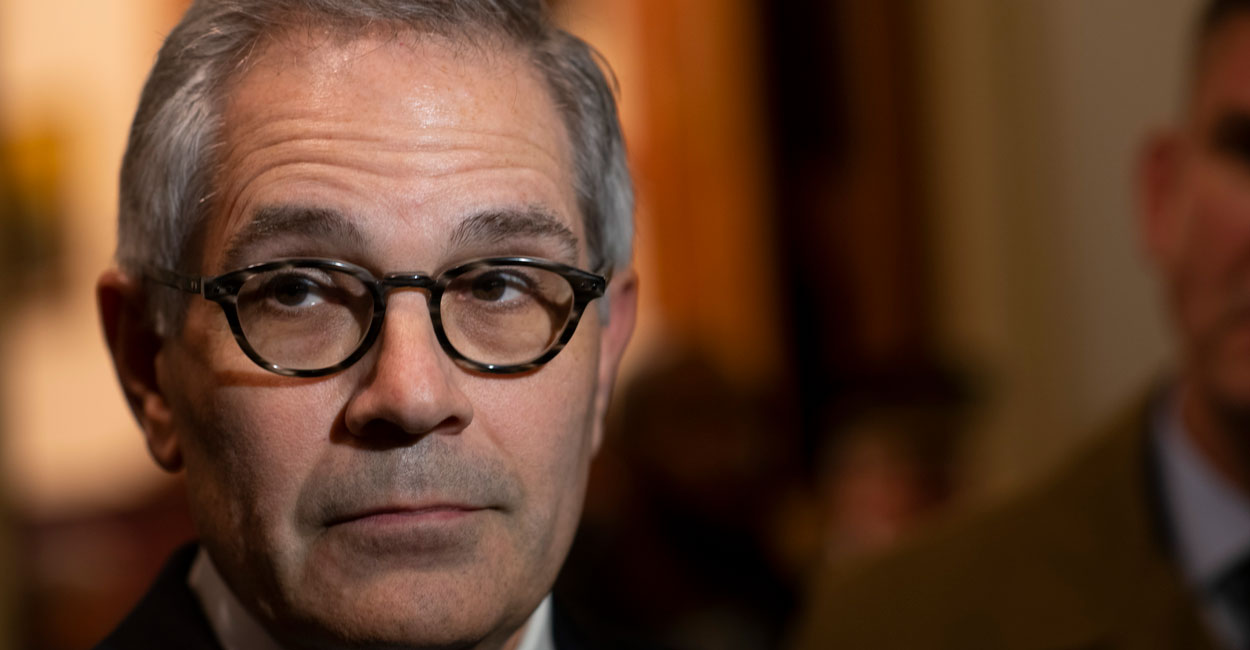To some people, the idea — Larry Krasner (shown here) running for Philadelphia district attorney – seemed bizarre.
He had never been a prosecutor. He had spent 30 years as a defense attorney, often representing protesters and suing police. The police-union president called the idea “hilarious.”
Except Krasner won quite easily, even surprising himself. “I was a political unknown,” he told the Television Critics Association. Originally, “I thought I had about a 40 percent chance to win.”
Then came the tough part, traced in “Philly DA,” an eight-hour series starting 9-11 p.m. Tuesday (April 20) on PBS: He wanted to de-emphasize some crimes and to quit asking for cash bail for most.
That’s part of a trend, Krasner said, that had already started in other large cities. “Ten percent of the population of the United States has elected a progressive prosecutor, including … Los Angeles. Ten years ago, that number would have been zero percent.”
His opening came when the previous district attorney resigned and pleaded guilty to a bribery charge. Six candidates entered the 2017 Democratic primary, which is the de facto election in Philadelphia. “On election day, I thought we were going to win or lose this by a few hundred votes,” Krasner said. “We didn’t; we actually won it by a landslide.”
Krasner drew 38 percent; the next-highest total was 20. In the general election, he neared 75 percent.
His arrival “was an extremely stressful time, I think, for everybody in the office, the new people and the old,” Lisa Harvey said.
As head of the juvenile division, she survived the original purge. (In the first week, Krasner fired 31 lawyers, about one-tenth of his legal staff.) Now she’s moved to a similar job with the family court.
By some views, Krasner was bringing a variation of the “defund the police” philosophy. That can be precarious, said Javier Rodriguez, a police captain in his native Philadelphia. He points to Minneapolis’ city council, in the aftermath of the George Floyd tragedy: “They voted overwhelmingly to defund the police and then – several months later, on a 7-6 vote – they voted to put more money into an overtime fund for neighboring jurisdictions, because of the rise in violence.”
This is simply a case of changing priorities, Krasner insisted – hoping to spend money on education and services on the prevention end. Taxpayers “may be more interested in keeping the blood off the ground initially, (rather than) focusing on catching it after the tragedy occurs.”
That may take a while. In four years, critics point out, the murders in Philadelphia have gone from 277 to 499; guns arrests have increased, but the conviction rate has dropped sharply.
Krasner, up for re-election in May, points to a sharp drop in prisoners. “Can we stop being the most incarcerated country in the world that simultaneously claims to be a land of freedom?”
At the core is shedding the current bail system. “We divorce money from the process of choosing who needs to remain in jail,” he said.
He set 25 categories – from shoplifting to minor drugs to sex workers with fewer than three convictions – for which prosecutors suggest no bail. That’s worked, he said, and people have shown up in court.
Such a system has succeeded in Washington,D.C,., for 30 years, Krasner said; the traditional system, he said, often failed: “It kept poor people on non-serious offenses in jail, … but it also allowed out really dangerous people who could pay whatever amount of cash was imposed.”
An example of the former is LaTonya Myers, who was charged with breaking and entering. (She was trying to get into the apartment she shared with her then-girlfriend, she said.) Bail was set at $15,000, meaning she needed $1,500 in cash. She didn’t have it, spent nine months in jail … and was acquitted.
To Myers, such things – happening disproportionately to Blacks – need to be discarded. “We have been through that time in our history, where we put prices on our individual freedom.”
